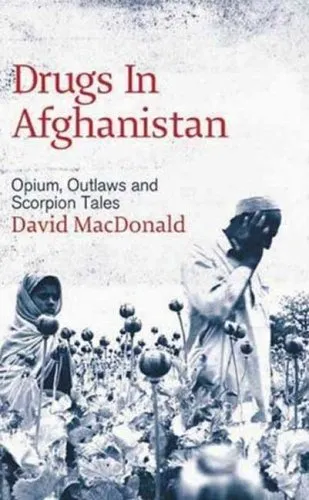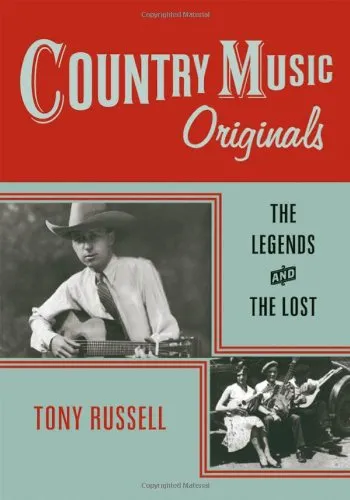Drugs in Afghanistan: Opium, Outlaws and Scorpion Tales
4.5
Reviews from our users

You Can Ask your questions from this book's AI after Login
Each download or ask from book AI costs 2 points. To earn more free points, please visit the Points Guide Page and complete some valuable actions.Related Refrences:
Introduction to "Drugs in Afghanistan: Opium, Outlaws and Scorpion Tales"
"Drugs in Afghanistan: Opium, Outlaws and Scorpion Tales" is an incisive examination of the unintended consequences of Afghanistan's opium poppy economy and its intricate relationship with global geopolitics. Written by David Macdonald, this book delves deep into the socio-political fabric of Afghanistan to uncover how drugs, crime, and power are intricately connected. It explores far-reaching implications for both Afghanistan and the international community, making it a must-read for policymakers, researchers, and anyone interested in understanding one of the most complex and devastating conflicts of our modern era.
Through a blend of meticulous research, first-hand experiences, and vivid storytelling, the book paints an unsettling picture of how entrenched this illegal trade has become in Afghanistan’s economy and society, ultimately perpetuating cycles of violence and instability. "Drugs in Afghanistan" is not merely an analysis of the "opium problem" but also a window into Afghanistan’s history and the challenges of eradicating one of the major sources of global illicit drug supply.
Detailed Summary of the Book
David Macdonald provides a thorough narrative of Afghanistan’s opium industry, contextualizing it within the broader political, social, and economic dynamics of the country. The book examines the rise of opium production over the decades, particularly following the Soviet invasion and subsequent wars that decimated legitimate agricultural opportunities.
At its core, the book dissects the infamous nexus between warlords, international drug cartels, and political corruption in Afghanistan. Through case studies, on-the-ground interviews, and historical analysis, Macdonald reveals how drug cultivation became both a survival strategy for impoverished farmers and a potent weapon for insurgent groups such as the Taliban. Furthermore, the book highlights how international strategies to combat narcotics often produced unintended consequences, sometimes exacerbating the problem instead of solving it.
Macdonald doesn’t shy away from addressing the role of foreign nations, including the United States, which infamously funded groups during the Cold War that later became key players in the illicit drug trade. By doing so, the book underscores the global dimensions of the opium crisis and the complicity of both local and international actors in perpetuating Afghanistan’s drug-fueled instability.
Rich in insights, the book also explores potential solutions, albeit through a critical lens, questioning the effectiveness of policies traditionally employed by international agencies and governments to combat the opium trade.
Key Takeaways
- Afghanistan is the world’s largest producer of opium, and this trade profoundly shapes its economy, politics, and society.
- Efforts to eradicate the opium economy often fail because they address the symptoms rather than the root causes of poverty and political instability.
- The global war on drugs cannot be won in isolation; it is deeply interconnected with political agendas, local culture, and global economics.
- The opium trade empowers warlords and insurgents, fueling ongoing cycles of violence and undermining governance.
- A sustainable solution must balance eradication and substitution with long-term investments in rebuilding Afghanistan's legitimate economy.
Famous Quotes from the Book
"In a nation ravaged by war and poverty, opium is not merely a crop—it’s a currency, a weapon, and a symbol of survival."
"The road to eradicating the opium trade in Afghanistan does not run through poppy fields but through the hearts and minds of its people."
"Afghanistan's opium economy is not an isolated phenomenon; it is a global problem that finds its roots in local suffering."
Why This Book Matters
"Drugs in Afghanistan: Opium, Outlaws and Scorpion Tales" matters because it forces readers to confront the uncomfortable truths about the global drug trade. It dismantles simplistic solutions to the opium crisis and challenges the narratives often perpetuated by policymakers and media about the so-called "war on drugs." More than just a book about Afghanistan, it is a lesson in how deeply interconnected our world has become, where the struggles of a farmer in Helmand province can ripple across continents.
Importantly, this book humanizes those caught in the crossfire of this multibillion-dollar industry. Whether it’s the farmer cultivating poppies to feed his family, the addict in another country grappling with dependency, or the soldier trying to enforce eradication programs, their stories are all tied to a system much larger than themselves.
In shedding light on the complexities of Afghanistan’s narcotics crisis, the book is not only a tool for academic debate but also a benchmark for informed policymaking. It invites you, the reader, to think critically, empathize deeply, and engage meaningfully with one of the most pressing challenges of our time.
Free Direct Download
You Can Download this book after Login
Accessing books through legal platforms and public libraries not only supports the rights of authors and publishers but also contributes to the sustainability of reading culture. Before downloading, please take a moment to consider these options.
Find this book on other platforms:
WorldCat helps you find books in libraries worldwide.
See ratings, reviews, and discussions on Goodreads.
Find and buy rare or used books on AbeBooks.
1220
بازدید4.5
امتیاز50
نظر98%
رضایتReviews:
4.5
Based on 0 users review
"کیفیت چاپ عالی بود، خیلی راضیام"



